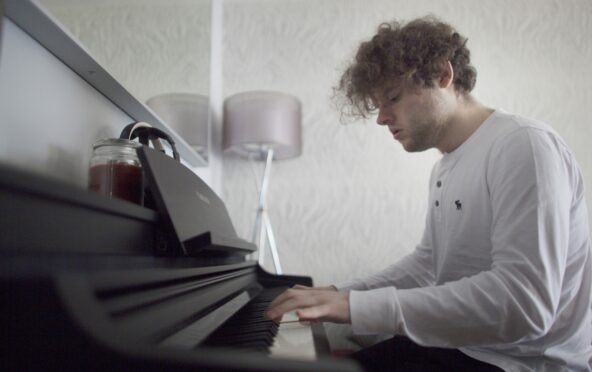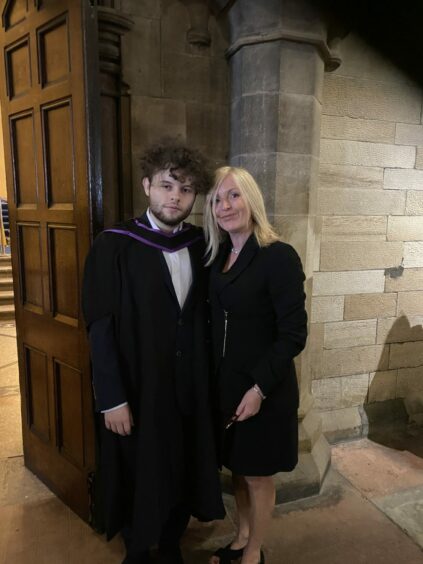
Young people with additional support needs – including those on the autism spectrum – are being held back because they are unable to access the same educational opportunities as their peers, Scotland’s children’s commissioner has warned.
Almost a third of school-aged children and young people are now assessed to have additional support needs (ASN).
But campaigners claim that despite a 2019 review of additional support for learning, which found young people needed more help to “flourish and fulfil their potential”, too many ASN children are still being failed by the Scottish education system. And while they acknowledge challenges such as the lack of resourcing and large classes, they called for local authorities to meet their statutory obligations.
Bruce Adamson, Children and Young People’s Commissioner for Scotland, said: “Schools and local authorities are under an obligation to assess and meet a child’s needs and include the child’s views about what they need in order to develop to their fullest potential.
“However, too many local authorities are not complying with their legal duties. We are deeply concerned that the pandemic has negatively impacted many children with disabilities or other additional support needs. The human rights of disabled children must be prioritised as quickly as possible.”
Schools have a legal obligation to make adjustments if a child is disadvantaged by a school rule or practice because of their disability, or by the failure to provide adequate support. Assessing whether these changes are “reasonable” includes looking at cost, school resources and health and safety issues.
The law also states schools should look to make these adjustments in advance, to ensure all pupils can access and participate in their education fully. Under the Equality Act, families do not need to have a formal diagnosis before requesting adjustments.
The comments come as The Ferret and The Sunday Post reveal the harrowing story of a young man’s fight to stay in mainstream education and achieve his ambition to go to university.
Over the years Robbie, 22, who asked to use his first name only, faced restraint, seclusion and exclusions from school.
His mother, Debbie Best, co-founder of parent-peer support group Differabled, claims his mental health was almost “destroyed” in the process. Despite his many setbacks, this summer Robbie graduated from Glasgow University with a 2:1 degree.
Jan Savage, director of learning disability charity Enable Scotland, said: “There needs to be root-and-branch reform. Fundamentally, we need more resources in schools.
“We need more classroom assistants and training in positive support strategies.
“There also needs to be far greater partnership working with parents, who know what works with their child. There’s a need to approach aspiration without limits.”
Wendy Clark, who set up Differabled with Best in 2014, says too many families are forced out of the education system altogether. “It is an extremely sad situation for any family to be placed in but we hear from those in that situation on a daily basis,” she said.
Yet she claimed it was essential not to pit parents against teachers but instead focus on system change and learn from schools who were already adopting a more inclusive approach. She said: “There are some wonderful schools who are providing the best that they can. Quite often these schools are not leading the league tables but they offer understanding, empathy and an individualised approach which is what our children need.”
When I was crying or in a state, I would be locked in a room. It made me feel abandoned
For students and their families, graduation day is always special. But for Robbie and his parents it was a day they were told would never come.
Diagnosed with autism spectrum disorder (ASD) and attention deficit hyperactivity disorder (ADHD) when he was six, Robbie, 22, was told he would not cope with mainstream primary or secondary schooling and should not even think about applying to university, due to his additional support needs.
But after fighting for 17 years to get the support he needed to stay in mainstream education – and sit exams – Robbie has been awarded a 2:1 degree in philosophy from Glasgow University.
Autism is a neurological and developmental disability which can affect how people communicate and interact with the world. It is estimated one in 100 people are on the autism spectrum – the severity of which varies.
Yet like many children and young people, Robbie said he found his ASD was misunderstood and unsupported at school leading to behaviour that saw him restrained, placed in seclusion, and repeatedly excluded. Though Robbie has achieved his academic ambitions, he has been left feeling “numb” by his struggles.
And for his mother, Debbie Best, it’s a bittersweet victory. “He would not have had the same choices if I hadn’t fought for them,” she said. “There is a sense that we should just be grateful but it feels sad that Robbie can’t feel pride or joy. He deserved the same as his peers.”
Robbie’s experience chimes with a report by the Children and Young People’s Commissioner Scotland that found restraint was happening inappropriately in schools, and too often to disabled children.
In June the Scottish Government published draft guidelines banning face-down prone restraint, saying that seclusion should only be used in emergencies. Meanwhile, 70% of those excluded from Scottish schools in 2020/21 had ASN.
Robbie and his family are speaking out because they want to help other young people avoid similar experiences. They are calling for educational reform that would see proper resourcing, awareness and teacher training to help every ASN young person meet their “limitless potential”, despite the challenges.
That reform, they claim, must include closer partnership working with families to make sure school is accessible for children whose disabilities mean they learn differently.
“We need a more flexible approach,” said Best. “That could include virtual or hybrid schooling for school refusers, more adaptable timetabling to reduce demands placed on those who are easily overwhelmed, or reduced hours or quiet spaces for pupils who need more time out.”
Best was first alerted to her son’s additional needs when he was at nursery, with staff resorting to restraining her five-year-old in a high chair because they could not cope.
Like many young people with autism he frequently became overwhelmed and overstimulated in the classroom. “That’s when the fight or flight response kicks in,” she explained.
Teachers tried to physically prevent Robbie leaving the room, so he would sometimes lash out unintentionally as he tried to flee. Staff suggested an autism assessment but diagnosis at the end of his first year at primary school didn’t get him the right support.
Best received a call after her then-six-year-old became distressed and disruptive in class. When she arrived he was being “restrained like an animal on the floor by the headteacher in front of all of the children, with another standing with a clipboard taking notes,” she said. “I will never forget that sight.”
Robbie was excluded and assessed with the expectation that he would no longer attend mainstream school, despite a Scottish policy which gives all ASN children the right to learn in mainstream schools if they want.
“I realised this was sink or swim,” said Best, who then started advocating for her son. She worked to secure a place at mainstream Meadowburn Primary, in Bishopbriggs, East Dunbartonshire, where she claims he was far better supported by the “nurturing” headteacher and staff. But she was persuaded Robbie could not cope with mainstream secondary. Instead he was given a place in Bishopbriggs Academy’s Language and Communication Resource (LCR), for young people with additional needs.
The school is regularly in the top 10 in Scotland-wide league tables and last year was awarded Scottish State Secondary School of the Decade by The Sunday Times’ Schools Guide. But Robbie says his experience there was far removed from such glowing reports.
“It was a total isolation from everyone else,” he said of the LCR. “I got treated horribly. When I was crying or in states I got locked in rooms. It made me feel abandoned, completely misunderstood.”
He described himself there as a “round peg being pushed through a square hole”, adding: “Eventually it goes through but damage is done.”
Robbie’s mental health deteriorated until one day his mother received a call telling her he had threatened to jump from a balcony. In one class he overturned a desk, accidentally hitting the teacher on the leg. She pressed charges and, on the first day of third year, police arrived at the 13-year-old’s door.
The relationship with the school broke down. Robbie stopped attending school for several months. His family consulted a lawyer and went to a tribunal where the school admitted “policy failures”.
Under pressure, it agreed to staff training and Robbie’s new head of year began working with the family, developing a plan that allowed him to leave the classroom unhindered when he felt overwhelmed.
The partnership approach started to work. Robbie achieved his National 5s and progressed to Highers. “But he was told he would never be able to make the progression to university due to the level of support he needed at school,” explained Best. Robbie remembers it with resignation. “In every institution I was in I was always told the next stage would be too much. You start to believe it in a way.”
His prelims went well and he got mostly As and Bs. But Higher exams brought severe anxiety and during an English assessment he broke down. His mother believes he had an epileptic fit brought on by stress.
Then the school delivered a bombshell – his English prelim paper had been lost. The grade was a fail. University offers for Glasgow and Stirling fell through. The school refused to appeal. “I felt like a totally lost person,” said Robbie. “For it to fall apart like that felt unfathomable.”
His mother finds it hard to accept or understand why a high-performing school allowed this to happen to her son. She didn’t give up, involving local politicians and the Scottish Qualifications Authority and eventually evidence was found which led to a B and entry to Glasgow University.
“But my son’s physical health and mental health, and his self confidence, was destroyed,” Best said. “Education needs to be totally reformed. Schools are judged by league tables and it’s leaving some of our young people behind. If even one young person has a less traumatic experience as a result of us speaking out then it’s worth it.”
Ann Davie, depute chief executive of East Dunbartonshire Council, said she could not comment on individual cases but said the council’s education service “takes all concerns and complaints seriously and works with families to resolve any issues as they arise”.
She added: “We are very proud of our reputation as one of the best education authorities in Scotland. Supporting all young people through their school journey to achieve their full potential is at the very heart of what we do.”

Enjoy the convenience of having The Sunday Post delivered as a digital ePaper straight to your smartphone, tablet or computer.
Subscribe for only £5.49 a month and enjoy all the benefits of the printed paper as a digital replica.
Subscribe